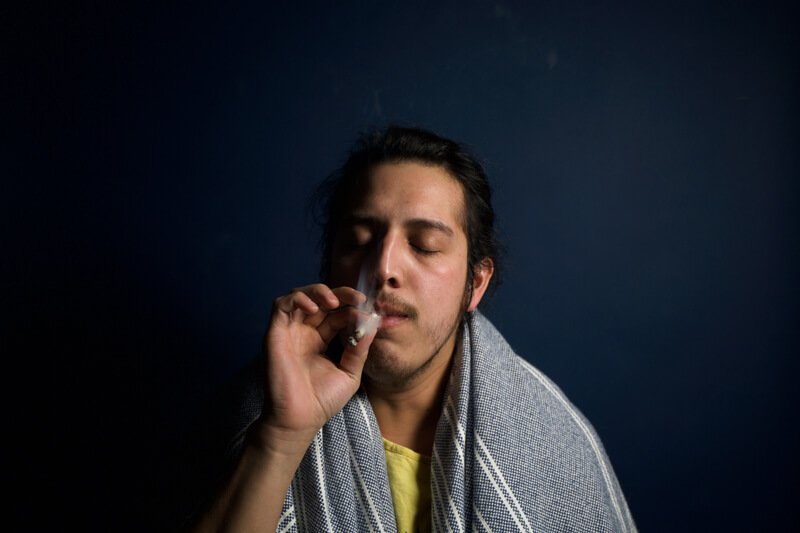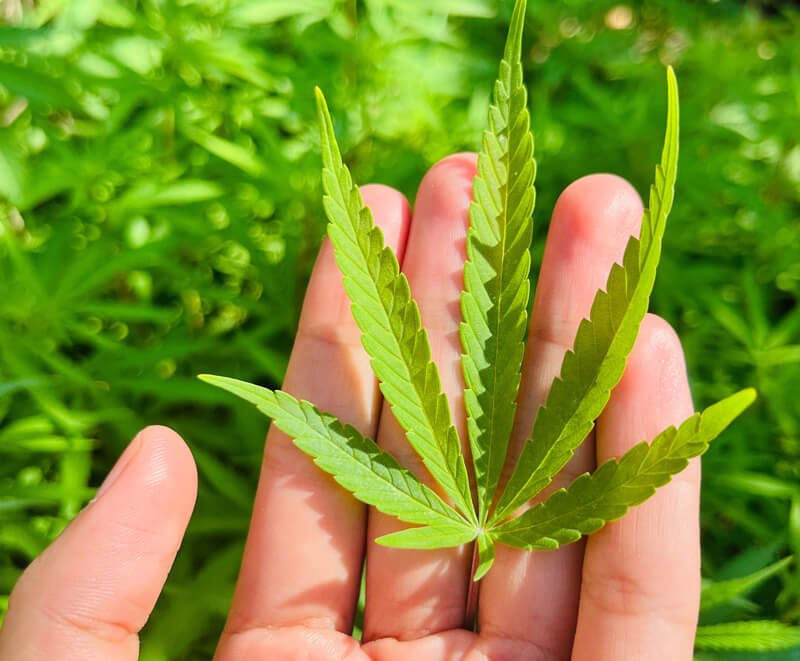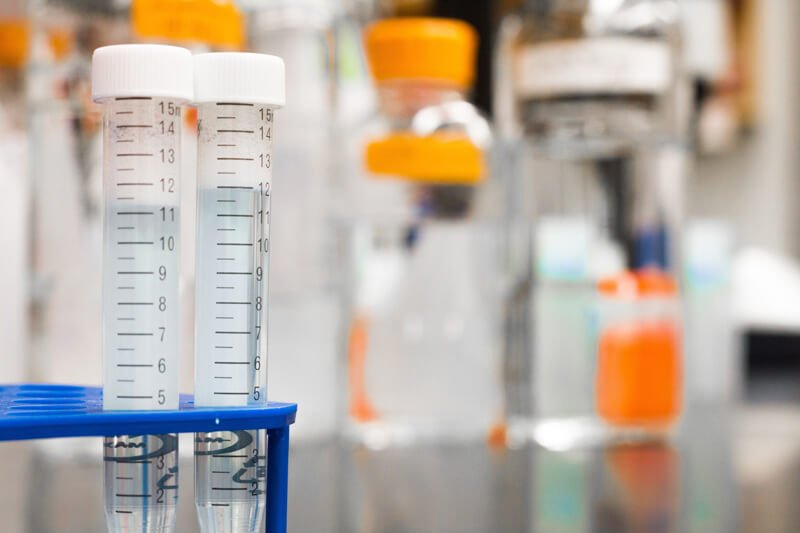Introduction
It’s important to understand how long marijuana stays in your system.
This is true whether you’re a medical patient, recreational user, or just have a friend who likes to smoke pot.
The effects of cannabis can be felt immediately, but it takes time for the drug to work through your body.
That means the length of time you’ll test positive on a drug test varies depending on what type of test you take and how often you smoke marijuana (if ever).

How Long Does Marijuana Stay in the Body?
The short answer is that it depends on many factors.
There are several variables that enter the equation when trying to determine how long marijuana, or any drug, will be detectable in your system. These include:
- The amount of time you’ve been using marijuana and whether you’ve taken breaks from use
- How often you smoke or ingest cannabis products (e.g., edibles)
- Your metabolism rate and other genetic factors affecting how quickly substances are metabolized by your body
- Your Body fat ratio, Because THC is fat soluble material, More fat, More THC will stay in the Lipid.
Why do people take the Weeds
People take marijuana for a variety of reasons. The most common include:
- To get high
- To relax (e.g., relieve stress or anxiety)
- To help with pain relief and nausea caused by chemotherapy and other illnesses such as AIDS, multiple sclerosis and epilepsy
- For stimulation in cases where appetite loss is causing malnutrition or weight loss, e.g., anorexia nervosa or cachexia resulting from advanced cancer
The benefit of Weeds
- Weed helps with anxiety.
- Weed helps with pain.
- Weed helps with sleep.
- Weed helps with appetite.
- Weed helps with nausea.

The hidden peril of cannabis
It is true that cannabis has a lower THC content than it did several decades ago, but some people are still at risk for adverse reactions to cannabis.
Cannabis can cause anxiety and paranoia in some individuals, especially if they have pre-existing mental health issues such as schizophrenia or bipolar disorder. People with these conditions should be careful about using cannabis because it might make their symptoms worse.
Brain scans of partial people who used marijuana showed changes that were similar to those seen in patients with psychosis or schizophrenia (a severe mental illness). These patients often hear voices telling them to harm themselves or others around them; they may think that others are reading their minds or controlling them in some way; they may fixate on certain objects or activities; and they may experience unusual thoughts and behaviours that aren’t part of everyday life (such as believing someone followed them home).
How Long is Cannabis Detectable via Drug Testing
The length of time that cannabis can be detected in your system depends on the type of drug test you are taking and whether or not you have smoked recently.
Cannabis can remain in your urine for up to 7 days after use, so if you have been smoking marijuana every day, then it will be present in your urine for up to the first week after stopping use. However, if you only smoke occasionally (once a month or less), there may still be traces in your system for much longer than a week but these tests are less likely to detect them as they look for cannabis metabolites rather than THC itself.
Saliva tests cannot detect weed as easily as urine or blood tests as there is no active THC left over once it has been absorbed by our bodies; however, certain products do exist that aim to help mask cannabinoids from being detected by saliva-based tests such as Mary’s Medicinals Mints ($15). These mints work by absorbing all traces of chemicals from cigarettes before they enter into one’s system at which point they are able to pass through undetected while still providing relief from some adverse effects associated with smoking weed like dry mouth (aka cottonmouth).
Drug tests can detect most marijuana use within the past week.
As with most drugs, marijuana can be detected for a longer period of time than it actually lasts in your system. You might test positive for marijuana use up to two weeks after you’ve actually consumed it, depending on how often you use and the method of consumption. For example:
If you smoke occasionally (less than once a week), traces of cannabinoids could be detected in urine up to 2-3 days after last use.
If you smoke more frequently (regularly, or daily), THC can still be found in urine up to 5-7 days after last use. The same goes for blood tests: The half-life of the metabolite 11-COOH-THC is about 7 days, which means that even though traces may not register as positive until then, they were likely present during an earlier window than this—and perhaps enough for someone who has been smoking regularly to pass an initial drug screen during their first week of abstinence from cannabis/cannabis products!

Urinalysis is the most common type of drug screening.
The most common type of drug test is a urinalysis, which detects THC in urine. This can be done with:
Urine (or sometimes blood) tests—detects THC use within the past few days to several weeks
Hair tests—can detect marijuana use more than 90 days ago (though this depends on how often people smoke)
Often, hair follicle tests are used to provide a longer history of drug use.
There are two types of hair follicle drug tests: the TLC and the 10 panel. The TLC is used for a longer history of drug use and can detect drug use up to 90 days. This test is often used as a second line of defense, when suspicious employers aren’t satisfied with the results of a first urine test.
The 10 panel gives more detailed information about your current state, such as whether you are currently under the influence of drugs or if you’ve recently consumed them. However, this type of test only lasts up to 7 days after ingestion, so it’s not necessarily useful in determining if someone was smoking weed last week or if their last hit was yesterday morning before work

Infrequent marijuana users may test positive for less than a week.
Infrequent users will test positive for less than a week.
While it’s impossible to give a precise time frame, most infrequent users can test positive for up to 30 days after their last use. Heavy users may be able to test positive for up to a month or more—but even this depends on the type of drug test being used. Some people have been known to test positive for 60 days or more (although this is rare).
A urine test can pick up marijuana use during the past week, or longer if you’ve used it several days in a row.
A urine test can pick up marijuana use during the past week, or longer if you’ve used it several days in a row. Hair follicle tests can detect THC for up to 90 days after your last use of marijuana. The more frequently you smoke and the higher your body mass index (BMI), the longer it will take for your body to eliminate all traces of THC from your system.

Conclusion
The effects of marijuana can be felt for several days after use, and if you want to take advantage of this information, then it’s important that you know how long weed stays in your system. The good news is that regular users may only test positive for a few days after stopping use.
